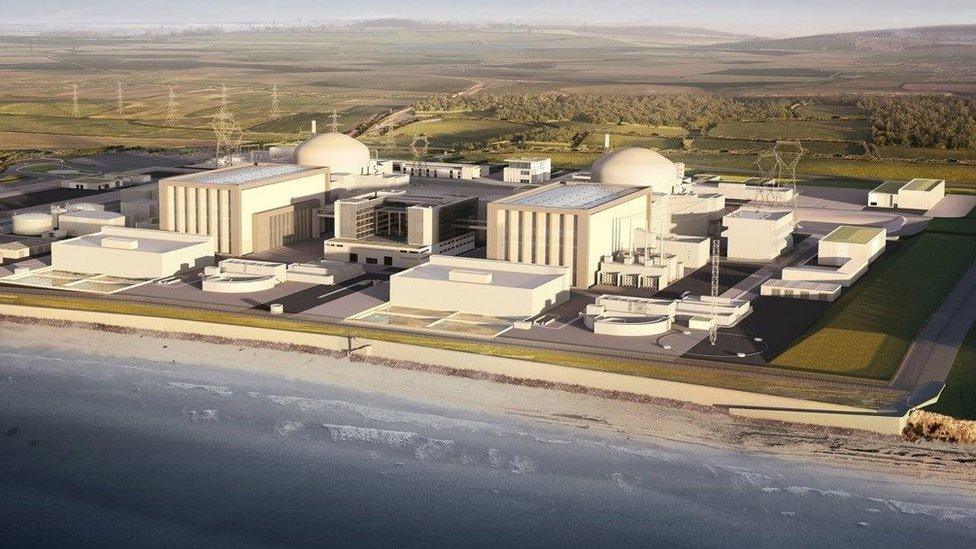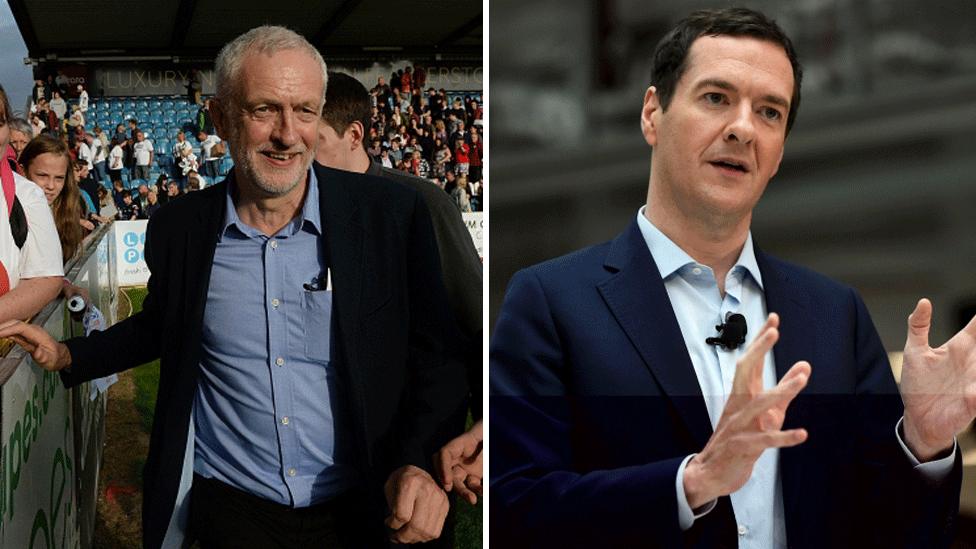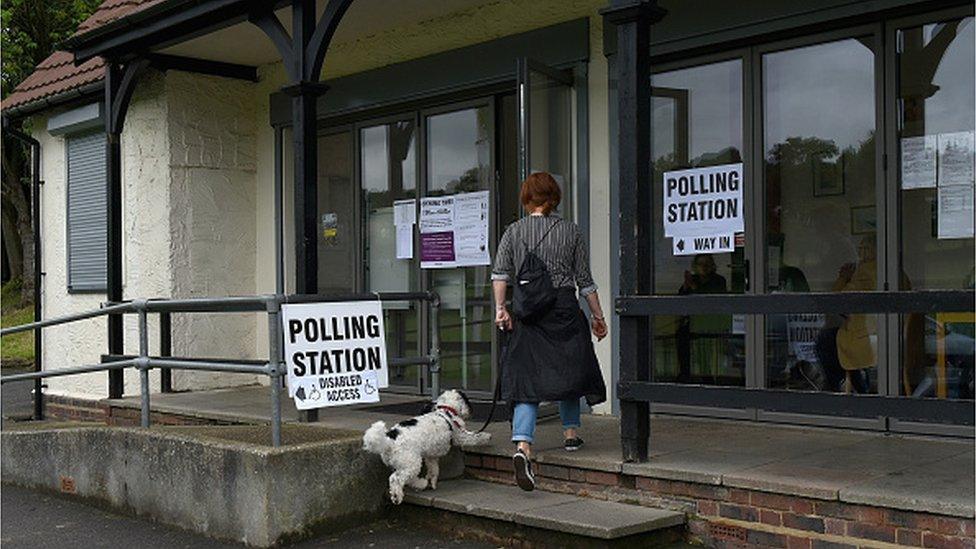What was behind Hinkley Point delay?
- Published

What was the delay to Hinkley really all about? Those close to the deal that was originally agreed say you can hardly tell the difference between the two.
I'm told the National Security Council had already considered the risks, and concluded that the existing rules on nuclear development were strong enough to deal with any problems.
Officials had looked at the Liberal Democrat idea of the government holding a special share as an additional control on the deal and decided it wasn't really necessary and wouldn't make much difference.
And huge diplomatic efforts had been made to push the deal through with the French and the Chinese. Theresa May's team are acutely aware that even raising the possibility of tearing up the deal was a big risk.
Much has been written about the reasons for the delay - concerns over cost, the French unions, security, and the environment. Yet given the similarities of what's now been agreed, perhaps it's worth looking not at why the PM delayed, but what would have happened if she had not?
Imagine that Theresa May have gone ahead as planned. EDF had planned a big ceremony to celebrate the deal at the end of July. Of course when that was put in the political diary, no one knew that there would be a new Prime Minister in place.
The events after the referendum, and the speed at which they unfolded surprised everyone in politics and business alike. By the time the EDF board was meeting, everything had changed.
Had the celebratory event gone ahead the brand new British leader would have signed up to one of the biggest and most controversial deals ever, barely a fortnight into the job - a political decision and an image that would have lasted for years.
Will project complete?
It's not surprising perhaps that the Prime Minister and her team shied away from signing Hinkley as one of her first defining acts. On the day EDF had planned its big jamboree Theresa May was in Warsaw pressing the flesh with the Polish PM - a sign perhaps that this decision, as so often in politics, was partly a question of priorities.
It's well worth remembering that while this painful part of the process is over, the whole thing is far from done.
There are questions about whether EDF actually has the capability to complete the project, and significant concerns in Parliament about the Chinese planned nuclear power station at Bradwell in Essex.
Ministers repeatedly said that their decision was purely about Hinkley. But China has always been clear, without the opportunity at Bradwell, there was little incentive to pile cash into Hinkley.
Sources tell me the British ambassador told the Chinese overnight of the Hinkley decision, but also assured them that would now be welcome to put forward their design for Bradwell.
Only a step on a long road to being given permission, but a step nonetheless.
- Published13 September 2016

- Published13 September 2016
